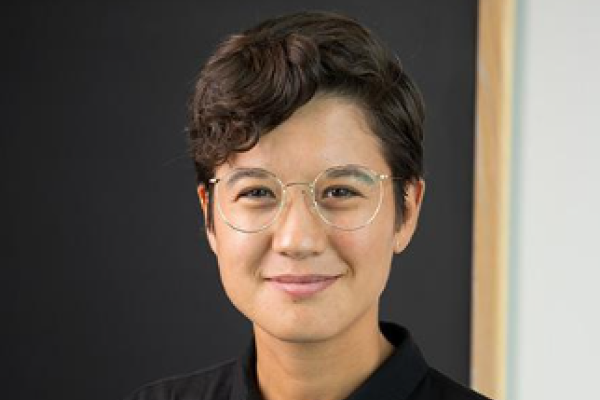
2024 GGSA Conference Schedule
Activating Margins:
Destabilizing the Canon from the Periphery
16th-Annual Germanic Graduate Student Association Conference at
THE OHIO STATE UNIVERSITY
February 23rd – 24th, 2024
__________________________________________________
Keynote Presentation
Saturday 2/24, 5:00-6:30pm
Dr. Mari Jarris
Department of German Studies, Cornell University
"Marxism's Matriarchal Origins:
Primitivism and Queer Kinship in the Age of Scientific Socialism"
In geology, active margins are where edges of tectonic plates meet and cause friction as well as develop new formations. Following this metaphor, the 16th annual interdisciplinary graduate conference organized by the Germanic Graduate Student Association (GGSA) at The Ohio State University explores the conflicts that erupt at the margins of and within the German canon that challenge its mechanism of power and enable new shapes and structures to emerge.
The process of canonization in German literature, film, theater, and other arts is inescapably met with counterreactions aimed at destabilizing the formation of a fixed canon, as highlighted by Pierre Bourdieu and Ralf Zschachlitz, fostering an ever-precarious balance within the literary landscape. Canon formation reinforces the values of dominant groups, overshadowing and silencing marginalized voices (Meyer 28). Hannah Arendt famously
described Walter Benjamin’s method of quotation as a diver drudging pearls from the dead world of the past so that, transformed, they may illuminate the present. Arendt describes these quotations as “living eyes and living bones that had sea-changed into pearls and coral, and as such could be saved and lifted into the present only by doing violence to their context in interpreting them with . . . new thoughts” (Arendt, Illuminations, 46). In the same spirit, we hope to extract “pearls” from the German canon while destabilizing its power structures. We seek to uncover how both established and underrepresented literary texts and other art and media forms can overcome structural limitations, offering insights that are liberatory and relevant to contemporary understandings of literature, art, language, and culture.
We encourage submissions that reimagine the traditional German canon through radical readings and reinterpretations. Possible topics include inquiries into marginalized perspectives in the following areas:
- Queer and feminist readings of canonical works
- Marxist interpretations for the 21st century
- Postcolonial analyses
- Deconstructions of established narratives,
- Critical translations and adaptations (e.g., on film, in theater, other media platforms)
- Recreations of children’s literature
- Explorations of Intellectual property and authorship
- Critical Theory
- Fan fiction
- Narrative Theory
- Canon and culture in pedagogy
We encourage exploration of remixes, critical translations, and adaptations across various media platforms, as well as discussions of the ways in which intellectual property and authorship shape how and what we read.
We want to know what the traditional canon might look like when exposed to active margins: How does transnational queer Marxism embrace a counternarrative to the dominance of scientific socialism? How does a postcolonial analysis of Immanuel Kant challenge the broader context of German intellectual history? Must we question fan fiction’s legitimacy as unauthorized distribution of intellectual property, or does it embody a transformative shift in the power dynamics of literary discourses?
We welcome abstracts from a variety of disciplines, including but not limited to: literature, philosophy, film, art, history, medieval studies, linguistics, pedagogy, cultural studies, gender studies and environmental humanities.
Please submit an abstract of 250-300 words and a brief biography to contact.ggsa.osu@gmail.com by 15 December 2023.
Presentations will be 20 minutes long.
You can find more information about us and previous conferences on our website: http://org.osu.edu/ggsa/
References
Birkhold, Matthew. Characters before Copyright. Oxford UP, 2019.
Bloom, Harold, and William Golding. The Anxiety of Influence: A Theory of Poetry. Oxford UP, 1997.
Criser, Regine, and Ervin Malakaj. Diversity and Decolonization in German Studies. Palgrave Macmillan, 2020.
Halle, Randall. Queer Social Philosophy: Critical Readings From Kant to Adorno. University of Illinois Press, 2004.
Jarris, Mari, and Helen Stuhr-Rommereim. “Nikolai Chernyshevsky’s What Is to Be Done? and the Prehistory of International Marxist Feminism.” Feminist German Studies, vol. 36, no. 1, 2020, pp. 166–192, https://doi.org/10.1353/fgs.2020.0012.
Kuzniar, Alice. Outing Goethe and His Age. Stanford UP, 1996.
Layne, Priscilla, and Ervin Malakaj. “Resisting the Traps of Hegemony: Variation in Contemporary German Queer of Color Cinema.” The Routledge Companion to European Cinema, Routledge, 2021, pp. 374–84, https://doi.org/10.4324/9781003027447-40.
Meyer, Christine. Questioning the Canon: Counter-Discourse and the Minority Perspective in Contemporary German Literature. De Gruyter, 2021.
Schlipphacke, Heidi. Aesthetics of Kinship: Form and Family in the Long Eighteenth Century. Bucknell UP, 2023.
Zschachlitz, Ralf, et al. Canon et Identité Culturelle: Élites, Masses, Manipulation. PU Saint- Etienne, 2010.
